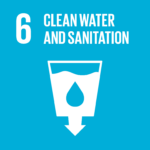A recent study published in Nature Geoscience, researchers from the Karlsruhe Institute of Technology suggests that groundwater Could Be Too Hot to Drink for 75 Million People by 2100.
In a sobering forecast of climate change’s far-reaching consequences, a new study suggests that rising temperatures could render groundwater undrinkable for up to 75 million people by the end of this century. The research, conducted by scientists at the Karlsruhe Institute of Technology (KIT), paints a stark picture of the challenges facing one of Earth’s most vital resources.
RELEVANT SUSTAINABLE GOALS


Groundwater May Become Undrinkable for 75 Million by 2100
The study, which examined two climate scenarios representing different socioeconomic pathways and greenhouse gas concentrations, projects that groundwater temperatures could rise by 3.8 to 6.3 degrees Fahrenheit by 2100. This warming trend poses significant risks to water quality and could necessitate widespread treatment measures.
Dr. Susanne Benz, the study’s lead author from KIT’s Institute of Photogrammetry and Remote Sensing, emphasized the urgency of the situation. “Our results show how important it is to take action to protect groundwater and find lasting solutions to counteract the negative impact of climate change,” she stated. The implications are dire: in some regions, drinking water may require boiling or other treatments before consumption.
The research estimates that between 77 and 588 million people could be affected by 2100, depending on the climate scenario and population trends. This wide range underscores the potential for significant variability in outcomes based on global climate action.
Groundwater temperature plays a crucial role in water quality, influencing chemical, biological, and physical processes. Warmer groundwater can lead to increased concentrations of harmful substances like arsenic and manganese, posing health risks to those relying on groundwater for drinking.
The study’s findings highlight the complex interplay between Earth’s warming surface and its subsurface water reserves. While oceans absorb much of the heat trapped by greenhouse gases, soil and groundwater also serve as significant thermal reservoirs. The researchers have developed maps projecting global groundwater temperatures at various depths, revealing that areas with shallow water tables are most at risk of rapid warming.
Conversely, mountainous regions with deep water tables, such as the Andes and Rocky Mountains, are expected to experience the least warming. This geographic variation in impact underscores the need for localized strategies to address groundwater challenges.
As the world grapples with the multifaceted threats of climate change, this study serves as a stark reminder of the vulnerabilities in our most fundamental resources. The potential for widespread groundwater degradation adds urgency to global efforts to mitigate climate change and adapt to its impacts.
With millions of lives potentially affected, the research calls for immediate action to protect groundwater resources and develop sustainable solutions. As temperatures continue to rise, the race to safeguard this critical water source becomes increasingly pressing, demanding attention from policymakers, scientists, and communities worldwide.
Lead image courtesy of ADragan from Getty Images Pro
You may also be interested in :
Navigating The Water and Waste Crisis In The Philippines and Indonesia


